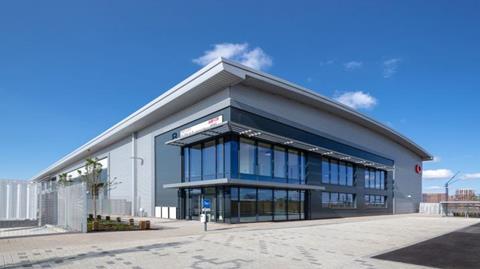Segro, the UK REIT with £21 bn (€24 bn) of European business, industrial, manufactruring and logistics assets, has said rental growth is strong via a financial update to the market for the year to October 17.

The company, which is listed on the London Stock Exchange and Euronext Paris, said being on track for a strong year of rental roll growth was due to active asset management and high-quality assets.
The company has 10.3 m2 under management. It has 73 assets in the UK, 58 in France, 27 in Italy, 27 in Germany, and more assets in Czech Republic, Netherlands, Poland, and Spain. It has a largely pre-let development programme.
Despite a confident trading update, shares were down 1.36% at £724 pence by midday. The maximum they have ever reached was in January 2022 when they peaked at 1436 pence at the end of 2021 having gradually climbed since a former peak of 1243 in January 2007. In the last 18 months they have been cut in half to 724 pence.
Segro said it was making good progress with disposals with over £250 mln completed so far this year above book value.
David Sleath, CEO, said: ‘Segro’s prime portfolio and market-leading operating platform generated £58 million of new contracted rent so far in 2023, keeping us on track for a strong year of rent roll growth.’
‘Occupier market conditions remain supportive with demand in line with longer-term trends and supply constrained in our chosen sub-markets. This is resulting in continued rental growth, further increasing the reversionary potential in our existing portfolio, which we are capturing through our asset management and leasing activity.’
He added: ‘We have made good progress with disposals in recent months, although the overall volume of investment market transactions remains subdued due to the evolving macro-economic environment. Reassuringly, investors continue to hold conviction over the attractiveness of the sector, with market evidence from indices and recent transactions pointing to relatively stable asset values in the third quarter.’
“In the current environment it is important to remain disciplined in our use of capital. We are prioritising attractive development opportunities on the land we already own, increasingly funding such investment from the proceeds of selective disposals, alongside driving performance and income growth from our existing portfolio of high-quality assets.’










